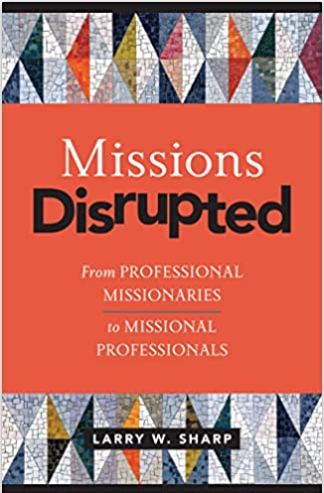
Point of articulation in church history
The missions world is experiencing a major transition. This book signals an accelerating trend and explores what is happening from several angles. We are coming to the close of the age of “the Greatest Missionary Generation” and beginning the “Age of Missio Dei.”
Since the first century AD, there have been historical events―such the persecution of the early church, the Edict of Milan, and the Protestant Reformation―where major disruption resulted in the radical advance of the gospel. We are on the cusp of another disruptive innovation.
The proposition behind this book is not about reforming missions but about missio Dei . It does not just represent another missionary methodology; it represents missio Dei in the context of God the Creator. Our work is a worshipful expression of our sacred calling to live a holy life, serve others, and bring others to do the same.
The book analyzes this theme from an historical, theological and sociological perspective.
What is disruption?
The transition has been triggered (identified) by the appearance of Disruptive Innovation. This phenomenon is described in the field of sociology as a process which begins as an outlier in the market and gradually moves up in importance until it displaces the older, conventional practice. Sharp sees this happening in the world of missions.
Disruptors define, refine, and ultimately create new realities by helping people see things differently.
Sharp asks, “Could disruptive innovation be describing the future of God at work in the world?”
Theology of work
He challenges us to see the world differently… to be involved with our God – given wiring as in the parable of the talents.
“All have responsibility to serve the kingdom of God with integrity, authenticity, faithfulness, and truth. If the Christians of the first century could spread the good news efficiently by living out the message of Jesus without a sending salary, a professional training program, mission agency structures, or having a professionalized term such as ‘missionary,’ certainly the same could be true in the twenty – first century.”
Theory and practice
Only as faith is integrated with life where most of it happens at work, will any real and long-lasting change be affected in individuals and in communities.
“Churches and mission agencies will need to learn to leverage assets, bless the community, empower entrepreneur, and create multiple streams of income to fund mission,” he asserts.
Conclusion
“Kingdom – marketplace activity by God’s missional people makes the “product” (that is, loving your neighbor and making disciples) simple, accessible, convenient, and affordable. It doesn’t just improve on what’s been done in the past; it disrupts the status quo in modern times by remembering that “faith without works is dead,” creating wealth and promoting dignified sustainability. In one sense, it is an ancient idea; but because it has been largely forgotten, it may be considered innovative and certainly disruptive.”
What readers will learn:
- History of modern missions
- Social theory about disruptive innovation and its importance for missions
- An understanding of the Theology of Work
- Historic and Current examples and case studies of marketplace ministry
- Resources for applying what was taught
Who is this book for –
The book will be of special interest to those wanting to understand the history and trends of marketplace ministry. It will also be of interest to anyone who want to understand what God is doing in the world today and how to be a part in His work. It should be of interest to all believers as it lays out God’s marching orders for those who follow him.
Who is Larry Sharp
He is a practitioner, not a theoretician. He writes from his experience as a former missionary and marketplace coach. Larry Sharp believes that the era of “professional missions” as we’ve known it is coming to an end. God is not done with his redeeming mission. But the strategy is shifting. The future now lies with “missional professionals,” with new rules for how the gospel of Jesus Christ can be proclaimed.
By Phill Sandahl